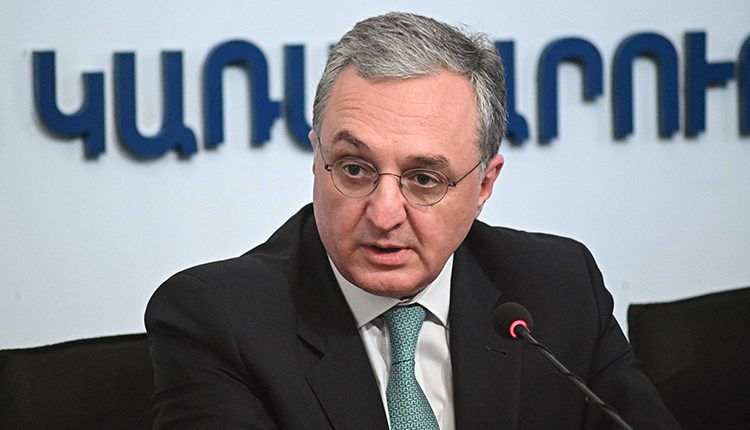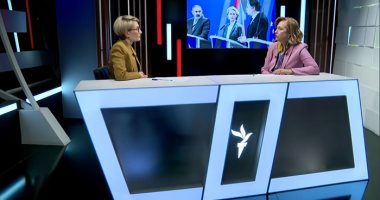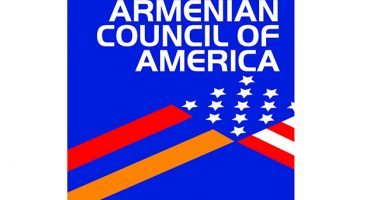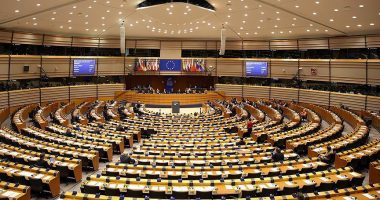YEREVAN — Foreign Minister Zohrab Mnatsakanyan implicitly denied Russian Foreign Minister Sergey Lavrov’s claim that Yerevan and Baku are “actively discussing” peace proposals calling for Armenian territorial concessions to Azerbaijan. He insisted that for the last two years the conflicting parties have only exchanged views on “some elements” of peace deals put forward by the Russian, U.S. and French mediators in the past.
“The Armenian side will never assume any approach that could endanger the security and pose a threat to the people of Artsakh, especially considering that the threat is real,” Minister Mnatsakanyan told a press conference on Tuesday.
According to the Minister, “the mutual concession must be proportionate, and should fully reflect the elements of security and status.”
Lavrov said on Tuesday that he presented them to his Armenian and Azerbaijani counterparts at a trilateral meeting held in Moscow a year ago. He said the proposals envisage a phased settlement of the Nagorno-Karabakh conflict which would start with Armenian withdrawal from “several districts around Karabakh.”
In a joint statement issued in March 2019, the mediators reiterated that a Karabakh settlement must involve “return of the territories surrounding Nagorno-Karabakh to Azerbaijani control; an interim status for Nagorno-Karabakh providing guarantees for security and self-governance; a corridor linking Armenia to Nagorno-Karabakh; future determination of the final legal status of Nagorno-Karabakh through a legally binding expression of will.”
This formula has been at the heart of various framework peace accords drafted by the U.S., Russian and French co-chairs of the OSCE Minsk Group since 2007.
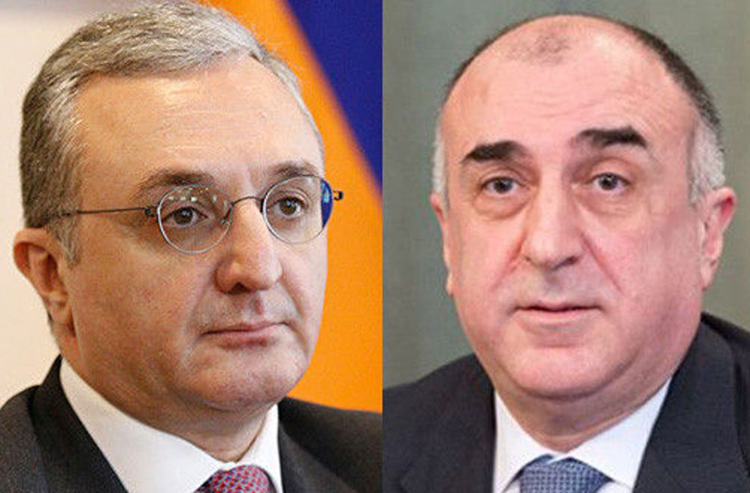

Armenian and Azeri Foreign Minsters Hold a Video Conference
Mnatsakanyan and Azerbaijani Foreign Minister Elmar Mammadyarov held a video conference on April 21, with the participation of the OSCE Minsk Group Co-Chairs Igor Popov (Russia), Stéphane Visconti (France), Andrew Schofer (USA) and Andrzej Kasprzyk, the Personal Representative of the OSCE Chairman-in-Office
The participants discussed the situation in the region due to the COVID-19 pandemic by emphasizing that all populations are confronting this new challenge without regard to political boundaries. The parties touched upon the recent developments in the region and issued an official statement that reads:
Armenian Foreign Minister Zohrab Mnatsakanyan, Azerbaijani Foreign Minister Elmar Mammadyarov, and the Co-Chairs of the OSCE Minsk Group (Igor Popov of the Russian Federation, Stéphane Visconti of France, and Andrew Schofer of the United States of America) have held frequent consultations remotely since mid-March, including a joint video conference on 21 April. Andrzej Kasprzyk, the Personal Representative of the OSCE Chairperson-in-Office, also participated in these consultations.
During the consultations, the participants discussed the impact of the global health crisis on the region and recent developments on the ground. They also considered next steps in the Nagorno-Karabakh settlement process in line with their joint statement issued in Geneva on 30 January 2020.
It was acknowledged that, due to the extraordinary situation resulting from the COVID-19 pandemic, the implementation of previously agreed humanitarian measures was postponed. The face-to-face Ministerial meetings and the visits of the Co-Chairs to the region agreed upon in Geneva have also been postponed. Nevertheless, the necessary work to prepare these activities continues.
The Co-Chairs underlined the importance of observing the ceasefire strictly and refraining from provocative actions in the current environment and called on the sides to take measures to reduce tensions further. They also expressed appreciation for the continued work of the Personal Representative of the OSCE Chairperson-in-Office under the present circumstances and stressed the need for monitoring exercises to resume as quickly as possible.
Considering the great challenges now confronting all populations without regard to political boundaries, and which serve as stark reminders of the preciousness of every human life, the Foreign Ministers and the Co-Chairs expressed the hope that the resolve seen in the global pandemic response will bring a creative and constructive impetus to the peace process. The Co-Chairs drew attention to the 23 March appeal by the Secretary General of the United Nations for global ceasefire measures during the current health crisis and to the Co-Chairs’ 19 March statement.
The Foreign Ministers and Co-Chairs agreed to remain in close contact and to continue negotiations in person as soon as possible.

